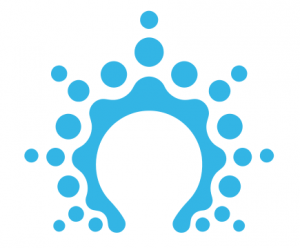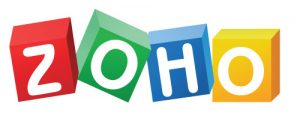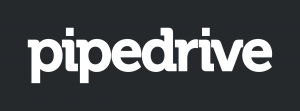What is CRM Software?
Customer Relationship Management (CRM) software, is a type of software used by companies to help them track and manage customer interactions. It is also referred to as Sales Force Automation (SFA) software as it automates all customer transactions in one system of record.
Some of the best CRM providers include:
Typically, a CRM will track all interactions between a business, any potential future leads as well as its existing customer base. It goes one step further in the automation process by saving and categorising all relevant customer data.
Most often, CRM software is utilised in a sales setting and serves as the central system for all key details: contact, account, opportunity management – automated to appear in one place. CRM software can be used independently or as an integrated solution with other business applications, depending on the needs of the company.
To be classified as CRM, a product needs to meet a few key criteria:
- Consolidate customer transaction history into one interface
- Track potential clients and contacts throughout each stage of the sale funnel
- Provides access to a specific set of sales-related functions
- Ease communication at each stage of the customer lifecycle
- Integrate sales functions into a single database and platform
Top 10 CRM Software
1. Salesflare
2. Monday
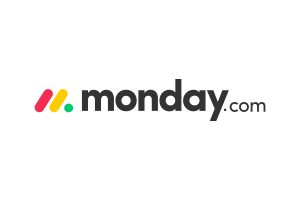
- Activity Logging
- Motivational tools
- Due date tracking
- Customisable fields
- Execution board
- PipeDrive integration
3. Less Annoying CRM
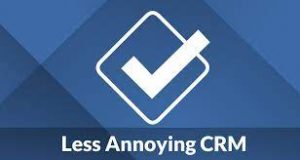
- Team event and task management
- Lead management and tracking
- Easy collaboration between staff
- Easy-to-use customisation tools
- Contact management
4. Zoho
- Visual Analysis
- Deep Analytics
- Sharing & Collaboration
- White Labeling / Embedded BI
- Extensible & Scalable BI Platform
5. Pipedrive
- An easy-to-use sales funnel
- Sales reporting and forecasting capabilities
- Manage leads and deals
- Track calls, emails and contact history
- Automated administrative tasks
6. Insightly
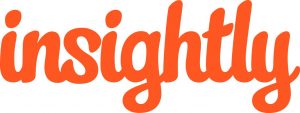
- Create Milestones, Pipelines and Tasks for Projects
- Track all email correspondence
- Automatic email reminders
- Set up relationships, pipelines, and activity sets
- Enterprise-Grade Products, Price books, and Quotes (PPQ) capabilities
7. Nutshell
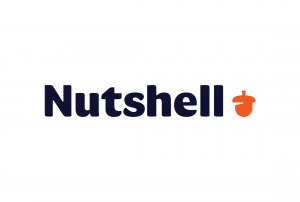
Nutshell helps sales and marketing teams to come together in order to win more details. The software prides itself on its simplicity of use. By making the platform as easy to use as possible, it aims to reduce the amount of time that the team spends on administrative tasks and instead can maximise how much time they spend selling. Integrating with many of the software that small businesses already use, the software aims to be as accessible as possible. They have been praised both for their user-friendliness and their affordability. Additionally, they have a specific program ‘Nutshell Marketing’ which allows customers to design and send eye-catching emails and measure their engagement.
- Sales automation
- Pipeline management
- Reporting
- Contact management
- Team Collaboration
- Marketing
8. Salesforce
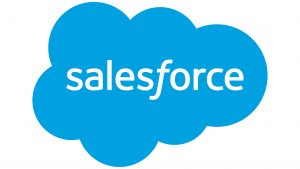
- Sales Opportunity Management
- Lead & Contact Management
- Workflow Rules & Automation
- Customisable Reports & Dashboards
- Mobile Application
9. Nimble
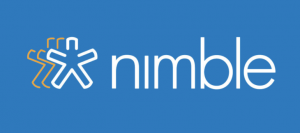
Nimble is known as being one of the industry leaders offering CRM for Office 365 and G Suite. Aiming to streamline user experience, it integrates with productivity apps including inboxes and calendars to offer all relevant information in one place. It aims to make businesses more efficient so that teams and individuals can focus on closing more sales. Specialising primarily in small to medium sized businesses, it has already been praised for its Overall Satisfaction and Small Business Sales and Marketing CRM (Ranked #1 by G2 Crowd and Fit Small Business). Nimble’s technology helps sales professionals focus on their personal and business relationships by operating across more than 90 cloud-based business applications. It combines classic contact management with advanced sales and intelligence and sophisticated automation processes.
Nimble’s key features include:
- Actionable, accessible contact records
- Organisation tools and administrative automation
- Tools for effective engagement
- Team management tools
10. Copper
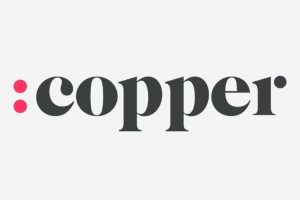
- Lead generation, management & tracking
- Sales & opportunity management
- Sales funnel management
- Pipeline reporting, management & analysis
What does CRM Software Usually Include?
There are a few core features that most CRM software includes which helps users improve their salesforce.
Lead Management:
Lead management is crucial for those looking to maximise their sales. Any leads that enter the company, be it through an online form or tracking online visitors, can be tracked automatically via CRMs. These can help you keep track of leads so that you do not lose them. They can also help to explore the best ways to pursue these leads based on a range of factors as they give key information about user behaviour. Additional factors, such as demographics, can help filter out the most valuable leads and rule out those which may be a waste of time.
Contact Management:
Contact management helps to manage existing customers and can keep all key contact information in one central hub. That way, teams have quick access to any of the contacts associated with an account. Tools such as this help to manage an extensive client list and take out a lot of the long-winded processes of data entry and bookkeeping.
Opportunity Management:
One of the core features of CRM software is opportunity management – the chance to track sales at different stages of its lifecycle. This allows companies to take notes on particular customer needs and pain points and modify their approach accordingly. It can also help identify if deals are close to being lost so that the sales team can take action and close the lead.
Sales Analytics:
CRM software offers many different analytics that are crucial for sales teams to assess and evaluate their sales actions. This can help companies to not only review their transaction history but also help them to forecast sales, assess team performance, look at key customer segmentation and potentially modify their approach.
What are the Benefits of CRM Software?
Keeping track of customer interactions: The core benefit of a CRM revolves around keeping track of customer interactions. This includes interactions such as phone calls, emails, or in-person meetings. Salespeople can track where customers and prospects are in the buying cycle to determine appropriate levels of contact and opportunities for upsells or engagement. This full picture view of the company’s interactions with a customer ensures that anyone throughout the company can know where a customer relationship stands at any given time.
Improved organization: CRMs provide users with a 360-degree view of customer interactions across all departments within the organization, increasing collaboration and ensuring a single, informed customer experience. Having all customer contact information and interactions in one space makes it easy to access all information about a customer, thus improving customer relationships.
In addition to housing more customer information, CRMs can also hold a list of all leads that have expressed interest in the business. Customers that fill out forms on websites can automatically get uploaded into the CRM that will organize the contact details, company, company size, and more information about the lead.
Increased revenue: The ultimate goal of implementing a CRM is to increase sales revenue. By having more detailed information on customer pain points, businesses will have a better understanding of what needs must be addressed with potential customers. This allows businesses to close more deals and secure more revenue.
Who is CRM software for?
For the majority of B2B companies, CRMs can be a huge time-saver as they encompass all key customer information in one place and negate the need for manual data entry and extraction.
Sales & BD Teams
At its core, a CRM is a sales tool. It aids salesforce with customer data in order to maximise sales and drive customer interaction. By organising and streamlining important client information, it frees up the salespeople to do what they do best: sell.
Business Development (BD) representatives need to keep track of their daily interactions with existing and prospective clients. They can keep a record of this in the CRM. That way, when they need to quickly access account information, or pass the information over to a different member of the team, the software allows representatives to instantly gain an overview of the account profile.
Internally, CRMs can be imperative for helping to see team performance and assess whether team members are reaching targets.
Customer Service Teams
Customer service teams are able to track interactions with both existing customers and prospective customers. Through CRM software, they are able to see how the customer interacts with different departments of the wider company. This can encompass things such as enquiries or complaints as well as just sales.
Marketing Teams
Marketing teams work directly alongside sales teams in order to support and target prospective clients. It can help the marketing team to understand the sales pipeline and at which stages there are opportunities. Additionally, it can help marketers segment targets and plan different communications strategies accordingly.
How much does it cost?
The cost of CRM will depend on a few key factors.
CRMs are typically priced per user and per month. Subsequently, in order to calculate your total monthly CRM investment, you have to multiply the base cost of your CRM by the number of people on your team who will be using the program.
The majority of companies will offer a basic package which include the essential functions, with more advanced options available which include more features.
If paying upfront for CRM, the cost of this will typically include setup, custom integrations and training. There are also ongoing costs which will mean paying a monthly or yearly subscription rate. Subscription models will typically be set up as per-user or per-contact.



